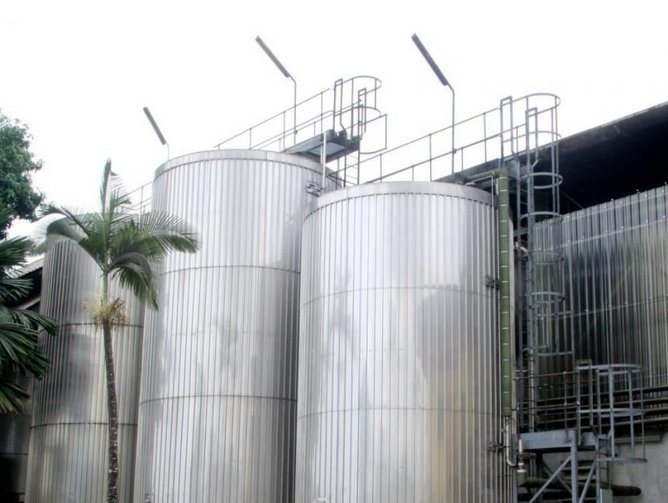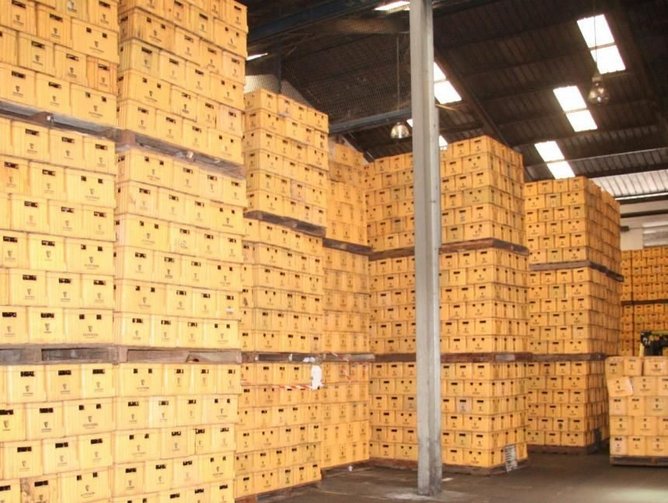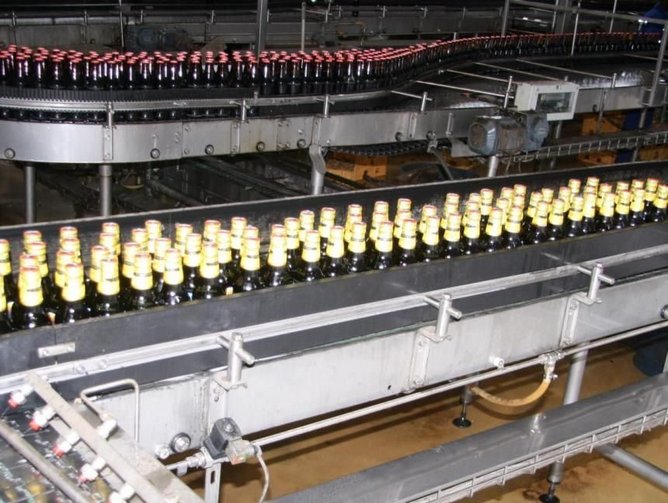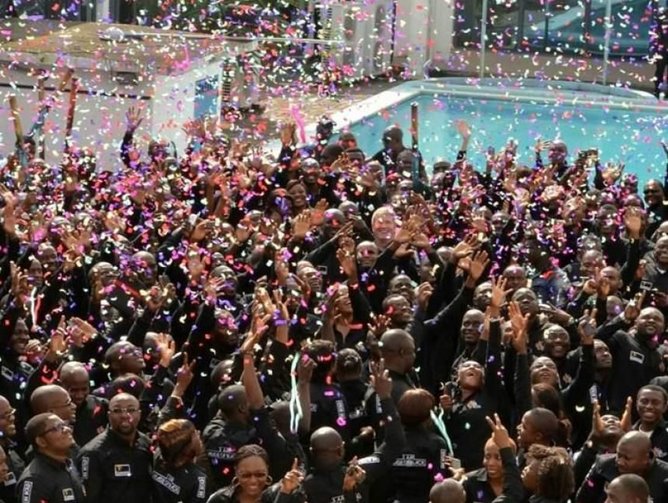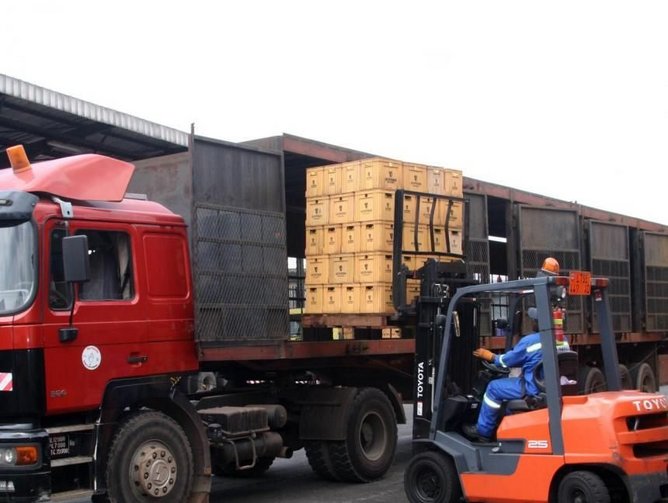The Diageo Guinness Cameroon we know today began when merchants started taking bottles of Guinness from Europe to Africa on their ships. The Cameroonians fell in love with the product, and Guinness Ltd – based in London – began officially exporting. This led to Guinness Cameroun SA (GCSA) being created in 1967, with the first depot opening in Limbe. Two years later a brewery was built in Douala, and by 1970, production was firmly underway.
Guinness merged with IDV in 1997, becoming a subsidiary of Diageo Plc. The company is now the worldwide leader of premium beverages, with a range that includes huge brands in the world of wines, beers, and spirits, 29 of which rank as among the top 100 spirits globally.
As well as Guinness, Diageo distributes various Smirnoff-brand mixed drinks and vodkas, several Johnnie Walker whiskeys, Baileys, Gordon’s, Gilbey’s, and many others. Cameroon is now the fifth largest Guinness market in the world, with around 430 dedicated employees and 29 distributors covering the national territory.
Company diversity
Diageo is committed to diversity within its employee base, ensuring meritocracy and inclusiveness by not discriminating based on ethnicity, gender, disability, religion, or age. It highly encourages women in particular to apply for roles, and hopes to achieve 50 percent female employees within the next four years. It currently employs 23 percent. The investment Diageo makes in its talent recruitment today has a direct and cumulative positive impact on the company’s performance and reputation. Its resourcing process is critical in helping ensure it has the right people in the right place at the right time.
Diageo also considers local recruitment to be vital, and boasts a 100 percent Cameroonian Executive Committee – barring the Managing Director. The company supports its local communities by raising the employment rate of Cameroonians coming from all regions, whether they speak English or French. The Diageo Way of Resourcing (DWOR) provides high-quality tools, resources, and support to help hiring managers and HR teams execute the resourcing process, minimise risks or poor selection choices, and ensure that all decisions are compliant and ethical.
The company offers training, internships, and various development programmes, with a heavy focus on launching the careers of younger people. It has programmes in place for generation Y because it believes they are who will truly make an impact to the company and the country as a whole. They have the opportunity to join a global company in which they will benefit from senior leaders’ coaching on both functional and leadership aspects. Diageo has a great culture of training to build capabilities of all employees and particularly people managers for them to provide a wonderful experience to their direct reports. .
Supply chain management
To deliver its ambition, Diageo Guinness Cameroon requires an efficient supply chain, and the team has implemented a system capable of rising to the occasion. The company maintains an excellent set of models, frameworks, standards, and systems. The aim of these is to drive excellence across the supply chain through proactivity, control measures, visibility of day-to-day operations, productivity, and quality assurance.
Logistics and distribution are specifically managed using a Move Business Performance Framework which covers a clear set of operational and financial Key Performance Indicators, standardised operation procedures, organisation structures, a capabilities agenda, information and systems platform, demand solutions for forecasting, and GPS. The information flows from the consumer to the logistics centre and triggers all operations.
Diageo Guinness Cameroon wants to create value for the local economy, and utilises its supply chain to do so, supporting and building capability amongst the communities in which it operates. From the farming and production of ingredients, to the manufacture and distribution of marketing materials or merchandise, each stage of its supply chain impacts its employees, local communities, and the environment, as well as other stakeholders. The company wants to integrate social and environmental standards into every link of those chains, and it has a clear commercial interest in ensuring that its supply chain is increasingly secure, stable, and sustainable.
Diageo employs three core principles in its relationships with suppliers: optimisation of due diligence, build capacity, and the support and creation of value with local businesses. The company’s strategy for attaining sustainable supply chains is partially measured against its sustainability and responsibility targets for 2020, and plans to achieve this with a combination of responsible sourcing, reducing environmental impact, and agricultural value chain partnerships.
Sustainability and ethics
Saving water is fundamental to Diageo’s sustainability strategy; it considers the measuring and management of its environmental impact important not only to the planet, but for financial sustainability, especially since its use is so prevalent in the brewing process. Water stewardship is therefore its biggest environmental priority, and this is enshrined in the Diageo Water Blueprint. The long-term plan is to be a business which does not materially deplete natural resources, contribute to climate change, or cause damage to species, habitats, and biodiversity.
The company has its own ethical policy – a Code of Business Conduct – which is underpinned by law, to ensure that employees and consumers are protected. This defines the company’s values and business performance, and the expectations of how those representing Diageo should behave. Reputation is critical to long-term commercial success, and the business wants to be seen as one of the world’s most trusted and respected companies – as well as being a great place to work – and for Diageo to become a by-word for acting with integrity and responsibility.
The fact that many of Diageo’s brands have been around for generations is part of what the company believes sets it apart. The phrase ‘celebrating life every day, everywhere’ is at the heart of the business; it means that people should be able to celebrate with Diageo’s brands at any occasion, anywhere in the world.
Diageo’s global business trades accross done across approximately 180 countries with over 30,000 employees and offices in 80 countries, and the staff truly cares for the legacy of the brands. The company takes its role as an alcohol producer seriously, knowing that misuse can reflect upon its brands, and has programmes and tools in place for customers to make informed choices about their drinking decisions.
It is this sense of community which makes Diageo unique. An essential part of its contribution to the wider communities which allow the business to flourish is a long-term investment in actively-managed programmes that help serve critical local needs. It has recently made a meaningful assessment of the potential impact of its supply chain, and it is increasingly focused on empowering stakeholders, from small-scale farmers, to bartenders who serve Diageo’s brands, and in particular, to women.
Diageo believes that its reputation can only be sustained if every part of the team is doing the right thing, every day, everywhere. Doing business with integrity goes beyond having a good corporate governance framework and policy compliance; it is about creating a culture that demands that integrity. Smart investments in quality, targeted innovations, and cost management have ensured healthy growth for Diageo in recent years, and it has its vast team to thank for this continued success.
The company recognizes that these strengths have carried it thus far, but that to improve performance in the future, it will need to truly be the best in its field to maintain its excellent reputation. As a result, Diageo Guinness Cameroon places all of its flair, positivity, and passion for the business at the centre of all future projects and initiatives, to ensure it stays firmly ahead of the curve.

